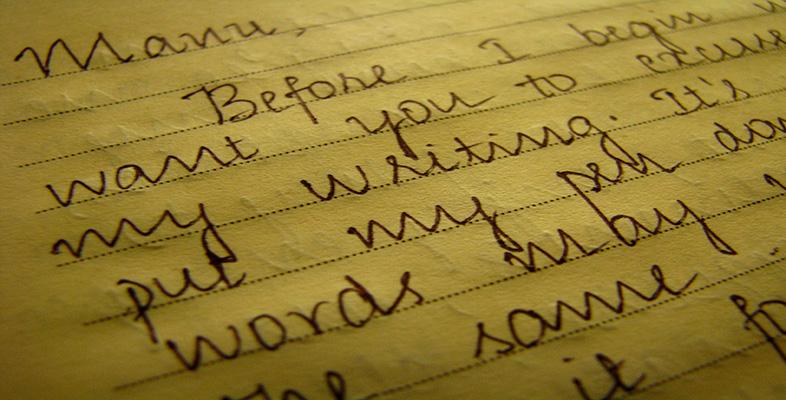1.7 More Sassoon voices: exercise
Exercise 2
I have not commented directly on what Sassoon is saying in ‘The General’ and in his ‘Protest’, but you probably have a good idea of what he meant. Now read the three further extracts from Sassoon's writings below, in all of which he expresses himself more openly. (The ‘Rivers’ in the second extract is of course the ‘Rivers’ whose signature appears at the bottom of the medical record sheet: Figure 1. The third extract is from Sassoon's semi-autobiographical novel.)
Of all the officers having dinner, I saw no face with any touch of distinction in it. They were either utterly commonplace and self-satisfied, or else tired-looking, feeble, goggle-eyed, or otherwise deficient. Why does one see so few proper-looking officers?
(from Sassoon's diary, May 1916; in Hart-Davis, 1983)
As they say, the war situation looks more hopeless than ever, and the bolstering speeches only make it seem worse. I am afraid I cannot do anything ‘outrageous’. They would only say I had a relapse and put me in a padded room … I have told Rivers that I will not withdraw anything that I have said or written, and that my views are the same, but that I will go back to France if the War Office will give me a guarantee that they really will send me there … After all I made my protest on behalf of my fellow-fighters, and (if it is a question of being treated as an imbecile for the rest of the war) the fittest thing for me to do is to go back and share their ills.
(from a letter that Sassoon wrote to his friend Lady Ottoline Morrell, 17 October 1917)
Neither of us had the haziest idea of what the politicians were really up to … Nevertheless we argued as though the secret confabulations of Cabinet Ministers in various countries were as clear as daylight to us, and our assumption was that they were all wrong, while we, who had been in the trenches, were far-seeing and infallible
(Sassoon, 1972)
How clear do you find Sassoon's meaning here? How does his use of language compare with the language he used in his ‘Protest? Is his choice of words influenced by his audience? Use your notebook to record your reactions.
Discussion
I imagine that you will have found the language in both Sassoon's diary and his letter more direct and straightforward than in his ‘Protest’, and noticed that he uses a greater proportion of normal, everyday, even slang words. His meaning seems to come through clearly. We may not get an exact picture of what he thinks ‘proper-looking officers’ ought to look like, but we get a clear idea of his low opinion of the officers he describes in his diary. Similarly, although we cannot clearly identify the ‘they’ that Sassoon describes to Lady Ottoline Morrell, we can tell that he respects their power over him – if not either their judgement or their motives. Presumably Sassoon felt able to be open and honest with his single reader in each case – himself in his diary and Lady Ottoline in the letter – and felt no need in his attack to introduce the obscurity that he used in his ‘Protest’.
In the third extract Sassoon stands back slightly to put his views into the mouth of his fictional character, George, but when he wrote this in 1930 there was no need to be cautious, even in a published work.
